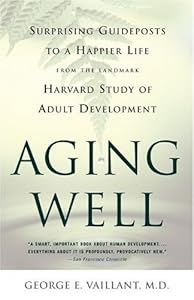 Image via Wikipedia
Image via WikipediaI write a lot about aging. I think our society and our media should understand the importance of this stage of life. The elderly and the retired are not a novelty. They represent the consequence of accomplishing old age. It is an accomplishment. There is an added benefit to society in having people who have acquired the wisdom that comes with getting old. Old people have stories to tell and skills to teach. It is inappropriate to pat them tenderly on the head and ignore their efforts and accomplishments.
Aging often represents loss of vitality and function in the media. We usually discount retired people as not engaged in the activities of life. We refer to their battles as "back in the day." I am campaigning in this blog and other places that I write to revise the attitude toward old age. A lot of information on the Internet and in print is directed toward the children or care-takers of the elderly. Society tends to treat them as stubborn children.
I am convinced that old people are pretty savvy. I am old. I like it. I know what I want, but I often defer my wishes for the sake of others. Don't dismiss my sacrifice because you don't think I know or understand. I do. I made the gesture gladly, but it was a sacrifice. It's O.K. to thank me.
Old people who are healthy and do not have a debilitating disease should not be discussed as if they were inadequate or absent by doctors, care-takers, or relatives. When my husband visited the doctor, he ofter asked me after the visit what the doctor had said. I was glad to tell him what I understood, but it made me mad too when the doctor talked to me instead of him. I thought the doctor had an obligation to make the patient understand what he was saying.
Sometimes old people give up. They don't ask questions. They don't want to look foolish or be treated as stupid. So they nod as if they understand. O.K. this is for the Old Guys and Gals who need answers from doctors, nurses, clerks, waiters, and cabbies: When you don't understand someone, look them in the eye and speak slowly so they will understand. State your question simply, and make them repeat it until you are satisfied. You deserve to be heard and understood.
Getting old involves all of us. Some of us are on the platform, and some of us are waiting for our turn.





